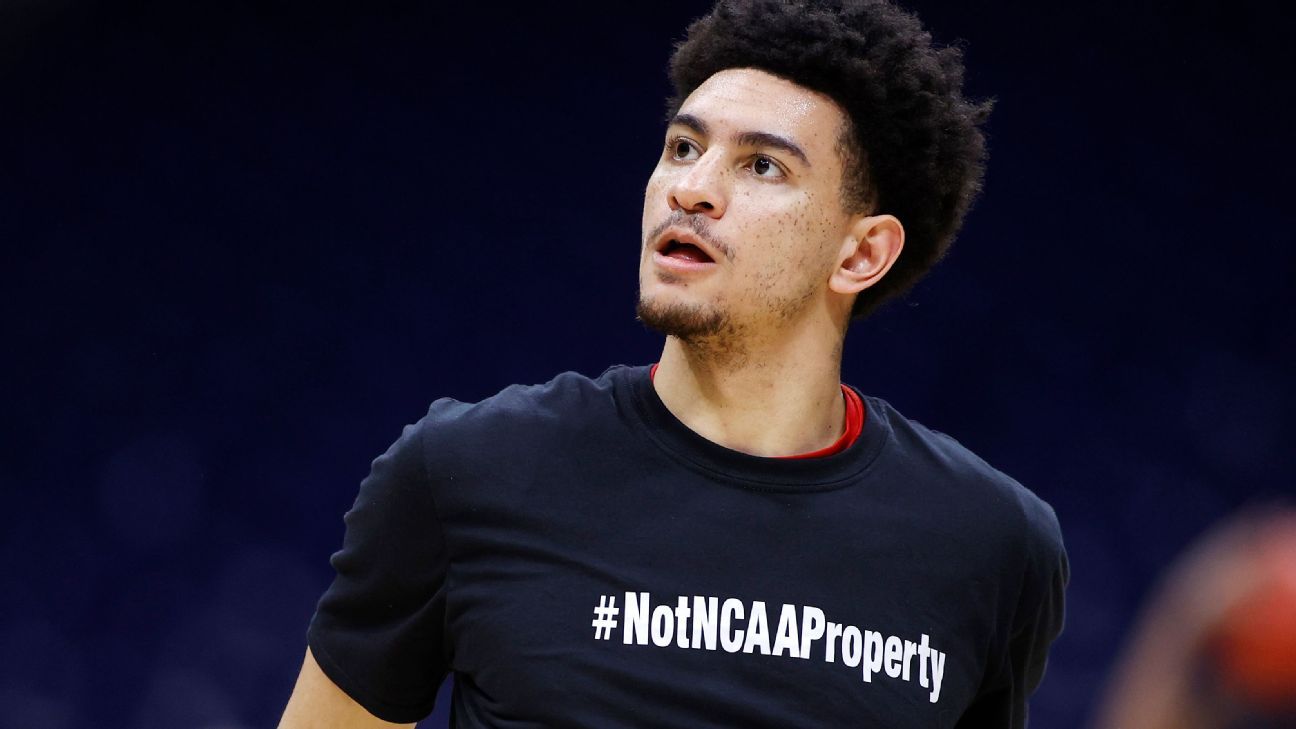Rutgers guard Geo Baker says the Scarlet Knights discussed delaying their NCAA tournament game last week against Clemson as part of an ongoing player protest of inequities in college sports.
Baker, Michigan’s Isaiah Livers and Iowa’s Jordan Bohannon are leading the #NotNCAAProperty movement that is pushing the NCAA to change its rules restricting athletes from earning money for personal sponsorship deals, online endorsements and appearances.
Baker and Livers both wore #NotNCAAProperty shirts during pregame warm-ups last week, and Baker told ESPN’s Rece Davis that the three players and their teammates have considered various other forms of protest — including delaying the start of March Madness games.
“We definitely talked about delaying games,” Baker told Davis during an interview that will air Saturday during College GameDay. “Us and Clemson actually were talking about delaying the game, but basically what ended up happening was we all believed that the television channel was going to get changed as soon as we tried something. So it ended up not going through.”
Baker and the 10th-seeded Scarlet Knights beat Clemson 60-56 last Friday for their first NCAA tournament victory in 38 years. The senior guard told Davis that Clemson’s players were interested in delaying the game but were concerned about the reaction from the Tigers’ coaching staff.
Baker also said he didn’t want a pregame protest to overshadow the rare March Madness appearance for Rutgers, which was playing its first NCAA tournament game since 1991.
“It was a unique situation because we hadn’t made the tournament in 30 years, so I didn’t want to ask guys to go out of their way to delay something or protest something that Rutgers fans haven’t seen in 30 years,” Baker told Davis during the interview, which also included Livers and Bohannon. “That’s a really long time … [but] we definitely talked about it.”
Baker, Livers and Bohannon are scheduled to meet with NCAA president Mark Emmert after the tournament to discuss the protest. The National College Players Association sent a letter to Emmert on behalf of the three players Tuesday, expressing disappointment that he was waiting until after the tournament to meet and that he would be meeting only with Baker, Livers and Bohannon.
“We are disappointed that you intend to delay this important conversation for at least two weeks,” the players wrote in the letter, which was sent to Emmert by NCPA executive director Ramogi Huma. “From our perspective, it’s difficult to imagine any higher priority you may have at this time … Can you please explain what you will be doing over the next two weeks that is more important than addressing these matters?”
NCAA spokesperson Stacey Osburn said Tuesday that the organization had no comment.
Baker told Davis that “a lot of people were telling us three to focus on our games” but that he, Livers and Bohannon have been stressing to their teammates and other players that elevating the protest during the NCAA tournament “is a lot bigger than just winning a couple of basketball games.”
“This is real change,” Baker said. “This is something that could really make a difference.”
The NCAA has committed to changing its rules regarding name, image and likeness rights, but the process has bogged down amid warnings from the U.S. Department of Justice about possible antitrust violations in the association’s proposal.
An NCAA case involving an antitrust ruling is scheduled to be heard by the Supreme Court next week.
The Associated Press contributed to this report.
